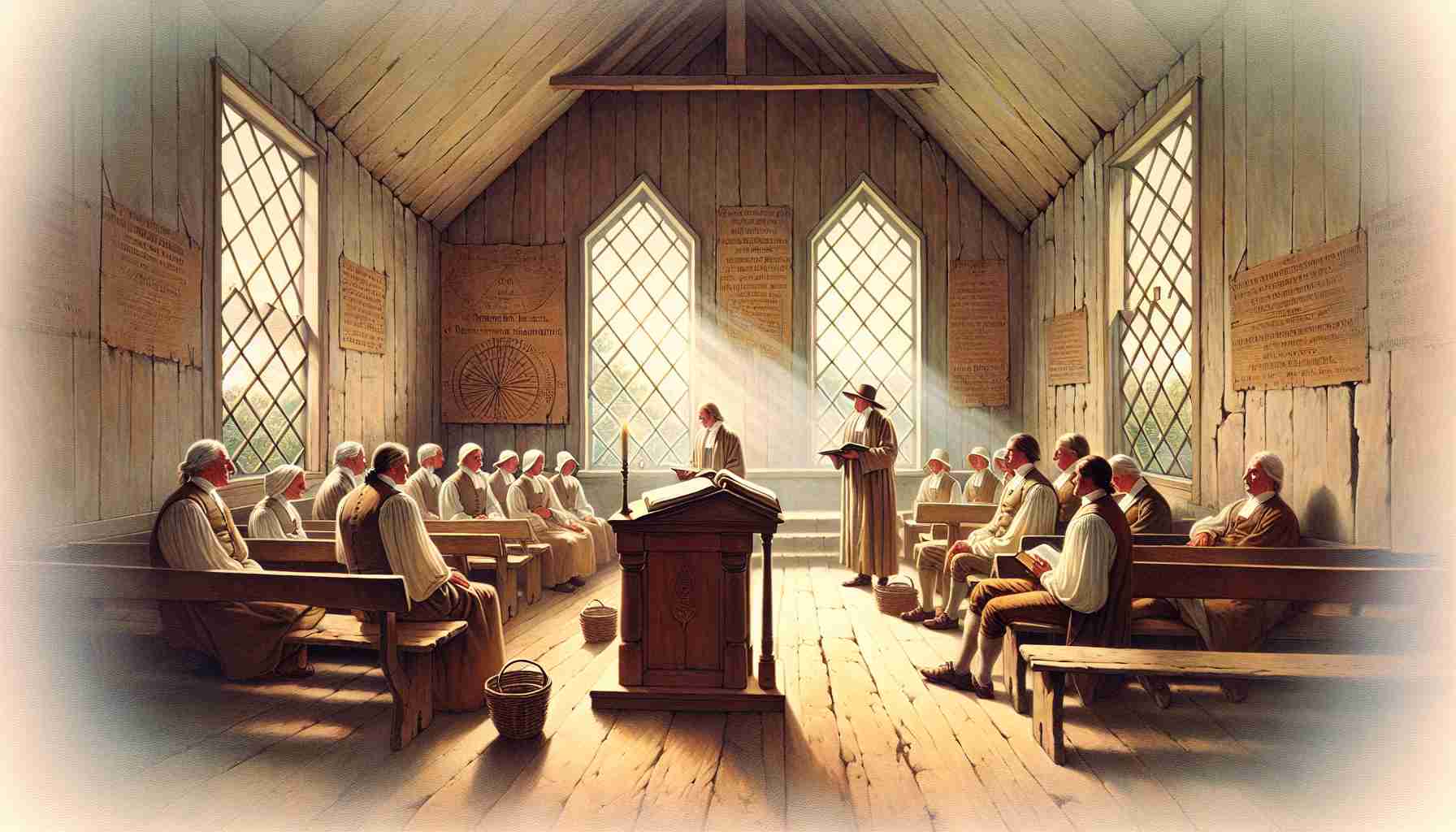

In the damp summer light of July 30th, 1718, the city of Philadelphia lay hushed beneath low clouds, its usual rhythm slowed by the whispers that fluttered from meetinghouse to marketplace. William Penn, the Proprietor, founder of Pennsylvania and champion of the “Holy Experiment,” had died.
Within a modest brick home on the outskirts of the city he helped plan, Friends from across the colony gathered in silence, the weight of his passing falling heavy on every heart. They did not mourn with the wails of other nations, but with heads bowed and hearts turned inward, as the Society of Friends had always done. In the hush, the memory of a life lived justly rippled like wind across a meadow.
"He hath shewed thee, O man, what is good," murmured an elder, the verse from Micah 6:8 hanging gently in the air. "And what doth the Lord require of thee, but to do justly, and to love mercy, and to walk humbly with thy God?"
The life of William Penn had been defined by that call. In an age still ruled by the scepter and the lash, Penn envisioned a land anchored not by wealth or conquest but by conscience and covenant.
He had once stood imprisoned in the Tower of London, his only crime the refusal to bow and curtsy to earthly thrones when truth belonged to God alone. From those stone walls, his pen had blazed words of liberty that would echo across oceans and centuries. No Cross, No Crown, he called his defiance—writing of the eternal rewards for those who would endure suffering in pursuit of godliness.
When King Charles II granted him the American land that would bear his name, some whispered it a bribe to settle royal debt. But Penn saw in it a divine opportunity—a blank canvas for a holy society. Fleeing Houndsditch alleys and the stake-lit fields of Europe, persecuted Anabaptists, Lutherans, Moravians, and Huguenots came to this new Eden—a city of brotherly love shaped not by walls but by shared humanity.
There were no militias on Penn’s borders, no war drums beaten against the Lenape. Instead, beneath the solemn canopy of the Great Elm at Shackamaxon, he met with the native leaders, unarmed and uncloaked in earthly power. He offered no treaties wielded by court lawyers nor promises that came with the gun’s shadow. Instead, he offered wampum belts and words sealed by the Light.
"It's never broken," they would say, the old ones among the Lenape. "Penn's treaty—we still wait for others to keep theirs as he did his."
In the settlement's early days, he wandered among the thatched lean-tos and log houses of those who had traveled far for refuge. He listened, not as ruler but as brother. He welcomed Jews to worship, Catholics to pray, and Quakers to remain still—understanding that liberty lay not in uniformity, but in peace with difference.
Yet what seed of God is sown without storm?
In London, his finances collapsed under the treachery of trustees. The friendly king was dead, and his successor found little value in Penn’s utopia. Betrayed by former allies, he spent his final years in debt and debtor’s prison—growing frail, paralyzed by a stroke, and dying far from the colony he loved, in the quiet countryside of Ruscombe.
But back in Pennsylvania, the dream breathed still.
The cobbled streets of Philadelphia bore the imprints of bootheels from many nations but spoke one language of peace. In newly built meetinghouses, consciences stirred free from shackles of state. His Charter of Privileges, scribed in 1701, stood above every parchment in principle, daring to limit the governor, not the people—a stone rolled downhill toward a new kind of nation.
Outside the meetinghouse, a boy stood watching a procession of plain-clothed men and women move toward the river. He clenched a small wooden flute, his German mother beside him, eyes misted with both grief and gratitude.
“Penn is gone,” she whispered in their tongue.
“But his world is here,” the boy replied, not understanding quite how true it was.
Above them, storm clouds rolled in low—gray fingers stretching across horizon and heart—but no thunder fell. In that silence, a legacy took root not in flags or thrones but in the lives commanded by humility, shaped by mercy, and wielded with justice.
Long after monuments would fall, and empires would fade, Penn’s holy experiment stood not as an ideal, but a testimony.
In every courtroom where conscience found refuge,
In every church opened for belief once silenced elsewhere,
In every handshake made instead of sword raised—
His light remained.